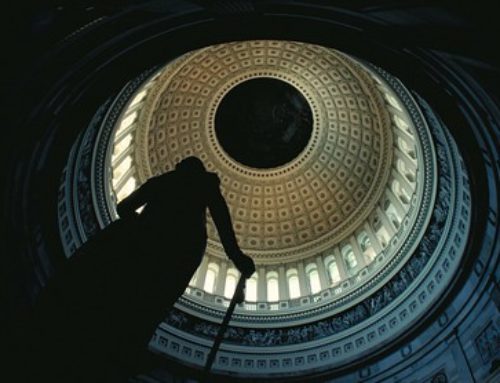Congress is racing the clock to pass earmark and ethics reform before they skip town for a month long vacation. For a bill that’s supposed to be about transparency, this one has been hidden away until the last possible moment. 411 Representatives voted for a bill more than 100 pages long that few probably read. The devil is in the details in this type of legislation. The Senate should slow down and fix some glaring shortcomings in this bill that first appeared yesterday. If that delays summer vacation plans for lawmakers, so be it, arbitrary timelines shouldn’t dictate ethics and transparency decisions in Congress.
There’s some interesting provisions are earmarks tucked into that bill. First thing to keep in mind is that the earmark provisions only affect the Senate. The House keeps their rules change; this bill would change the Senate Rules regarding earmarks. Second, even though the earmark section grew from 6 pages to 11, the reforms were watered down and chipped away.
First off, Parliamentarian was yanked from the job of refereeing whether earmark transparency requirements were met. The Majority Leader or Committee Chairman steps into that role, which is ridiculous. Clearly they are biased and wouldn’t bring a bill to the floor that wouldn’t certify as meeting the rules. The House has already had a few challenges regarding earmark disclosures which have been rebuffed because there is no real referee – all a Chairman has to do is put a list of earmarks in the bill and the requirement is met, there is nothing about it having to be accurate. The Senate is establishing a kangaroo court for earmark disclosure.
Next, the provision against vote trading for earmarks (conditioning votes on the inclusion of earmark) was struck from the text. Earmarks are the logs in log-rolling and this makes sure that the log-rolling in the Senate continues well after this bill is passed.
The ability to search earmark disclosures on the internet is put off until it is “technically feasible.” I guess the folks in the Senate never heard of Google. They also indicate that they will get around to posting the earmark disclosure letters “when practicable” instead of within 48 hours. There is no indication who makes this determination and when practicable might be. From our experience, it is more practical for the committees to release information after the voting is over, but that isn’t very helpful for taxpayers.
They also watered down the earmark self-dealing provisions. The original S.1 had an expansive list of immediate family that included all members you could think of and disallowed earmarks to benefit members financial interest. What they revised in this bill is to add “knowingly” get earmarks, more tightly limited the immediate family class and substituted “principle purpose of which is to further only his pecuniary interest” instead of “financially benefit or otherwise further the pecuniary interest.” This is setting a high bar, a member would have to purposefully (or knowingly) include an earmark that’s principle purpose is to benefit themselves or their immediate family. That creates a lot of wiggle room.
We’re just looking at the 11 pages of earmark reform. This is complicated stuff and to try to cram it through the Senate a few days while everyone is checking their recess watches is ridiculous. To make it worse, Senate leaders are going to try to paint proponents of more transparency and accountability as anti-ethics. Ethics and earmark reform are important enough to get right and leadership shouldn’t try to force an up or down vote without giving the Senators to opportunity to improve the bill.
And, in case you are interested, for once (I think) Reps. Flake (R-AZ) and Murtha (D-PA) had the same opinion of the earmark and ethics package. They were both part of the 8 that opposed.







Get Social